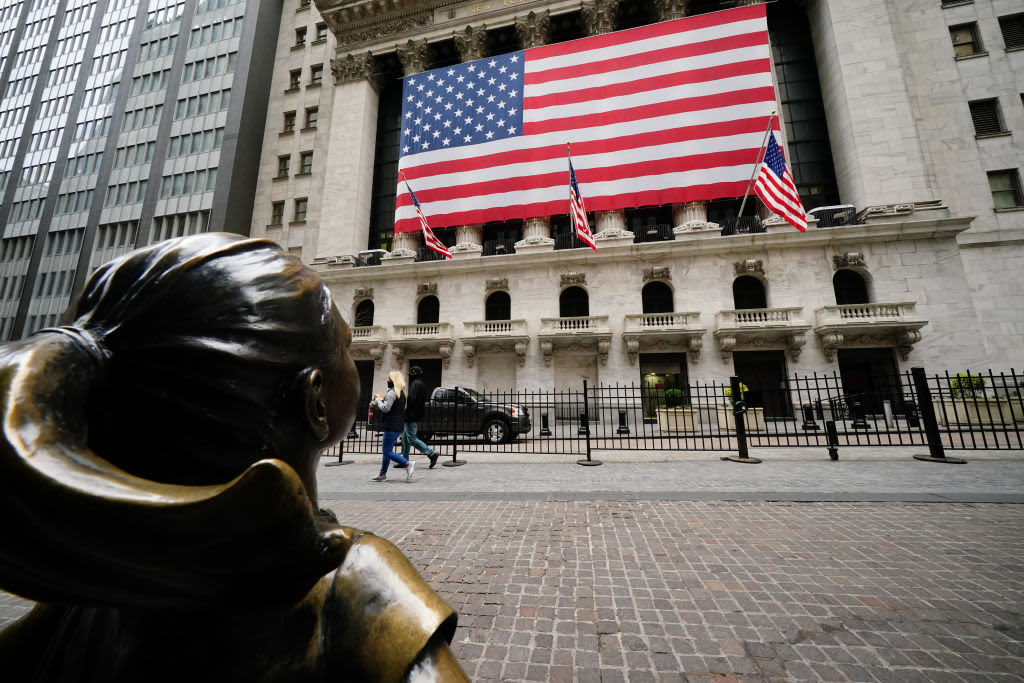A view of the Fearless Girl with New York Stock Exchange in Wall Street in the backdrop amid Coronavirus Pandemic on April 5, 2020.
John Nacion | NurPhoto | Getty Images
U.S. stock futures fell on Sunday night as Wall Street was set to kick off June trading on a sour note after consecutive monthly gains.
Dow Jones Industrial Average futures traded 217 points lower, or 0.9%. S&P 500 and Nasdaq 100 futures slid 0.9% each. Dampening market sentiment in early trading were disappointing trial results from Pfizer for a breast cancer drug. The company made the announcement Friday evening, sending its stock down more than 6% in after-hours trading.
The S&P 500 and Dow each gained at least 3% last week while the Nasdaq Composite advanced 1.8% to close out May. Those gains were propelled by increasing bets by traders that the global economy will successfully reopen after the coronavirus forces a shutdown of most economic activity.
Last week’s gains led the major averages to their first back-to-back monthly advances since late 2019. The Dow and S&P 500 gained 4.3% and 4.5%, respectively, for May while the Nasdaq Composite advanced 6.8%.
“The main downside risk facing stocks is a second wave of the disease,” said Peter Berezin, chief global strategist at BCA Research, in a note to clients. “If fears of a new outbreak were to escalate, risk assets would suffer.”
Berezin added, however, he recommends a “modest overweight” portfolio allocation to stocks, noting: “Even if a vaccine does not become available later this year, increased testing should allow for a more economically palatable approach to containment strategies.”
More than 6 million coronavirus cases have been confirmed globally, including over 1.7 million in the U.S., according to Johns Hopkins University. However, Novavax said last week is started Phase 1 clinical trials for its coronavirus vaccine candidate while Moderna said May 18 its early stage vaccine trial had yielded positive results.
U.S.-China tensions rise
But while the outlook on the coronavirus and the economic reopening seem to be improving, traders are also grappling with rising tensions between the world’s largest economies.
President Donald Trump said Friday the U.S. would end its special treatment towards Hong Kong. The announcement came after China had approved a national security bill that would increase the mainland’s power over the city.
However, Wall Street breathed a sigh of relief as Trump did not say he would pull the U.S. out of the phase one trade deal reached earlier this year.
Subscribe to CNBC PRO for exclusive insights and analysis, and live business day programming from around the world.
